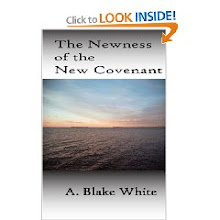
Here are just a few questions that have come up regarding the Manhattan Declaration. I will try and not comment (too much) on each question. Instead, I will just pose the questions. I welcome responses seeing that I have not yet firmly agreed, or disagree with the Declaration.
1. Are we Biblically mandated, commanded, or encouraged to draft manifesto's/declarations with political overtones (Mike Huckabee's example of the 95 Theses as being comparable to the Manhattan Declaration is absurd and shameful to even suggest in my opinion- though I like Huckabee otherwise)?
2. Are manifesto's/declarations usually effective?
3. Is the Gospel enough to change hearts and culture, or does a document/manifesto help the process of changing hearts and culture?
4. If the document is not about the Gospel (as I have indicated in another post I believe that many interpret the document this way...including myself) but about moral issues, then why does it not include Jews, Muslims, Buddhists, and even atheists so long as they agree on the moral issues? In other words, why exclude those who agree with the moral issues contained in the declaration?
5. Does the document not detail the Gospel due to the fact that all the original signatories would not have agreed upon what the Gospel is?
6. Will we see some of the people who signed it publicly ask for their signatures to be removed (I am thinking especially of the Together for the Gospel Conference coming up)?
7. Is there not an essential difference between Christians formally "partnering" with unbelievers in a club or society that is professedly not Christian (say PTA) as opposed to formally "partnering" with people in a manifesto who say they are Christian but whose particular church's official teaching clearly denies the Biblical Gospel (ex. Roman Catholic view of justification by faith)?
8. Again, should we not simply take people at their word when they profess that they are Christians? Maybe some of the signatories that signed the document really are Christian even though their particular church's official teaching denies the Gospel? In other words, could there be "rebels" for the Gospel still retaining membership in church's that are not evangelical Protestant?
I am trying to think through these issues clearly. Earlier today I listened to an interview of Al Mohler (probably the one most are surprised signed the document) who welcomed MacArthur and Begg's critiques and expressed gratefulness for their insight confessing he needs help thinking through these issues as well. If Mohler needs help, I think it is safe to say that I do as well! I created this blog with a conscious effort to not labor on current news like this. However, the fact that the President of my Seminary signed this document has drawn my attention into the debate.
By the way if you have not read the declaration, click here.
Grace and Peace,
Andy








Ok, Andy, I'll take the bait and get the ball rolling.
ReplyDelete1) Paul was a citizen of Rome, but didn't get involved in politics even though he had the right. But as your heading says, he "...determined to know nothing ... but Jesus Christ." But I think it's clear Paul did not expect everyone to be like him, nor did he make any mention to the gentiles to "repent" or avoid political activates, even though undoubtedly some gentiles were indeed Roman citizens.
2) Karl Marx and Adolph Hitler had manifestos, didn't they? I think a good manifesto can be effective, indeed.
3) False dichotomy, if not explicit, implied.
4) You'd have to ask the authors, but I'll bet those people would have a hard time calling Jesus Lord.
5) You'd have to ask the authors. Why doesn't the Declaration of Independence expound on theology? Like this one, most likely because it's a political document, not a religious document.
6) speculative.
7) Sure there's a difference, but it's the wrong question. Making a political statement is not the same thing as being a member of an organization.
8) Indeed. This is fundamental theology, isn't it? It's alluded to in the parable of the tares and the sower. It's the essential message of Romans 14, especially the concluding remarks.
I appreciate your thoughts. Do I personally know you Bob?
ReplyDelete